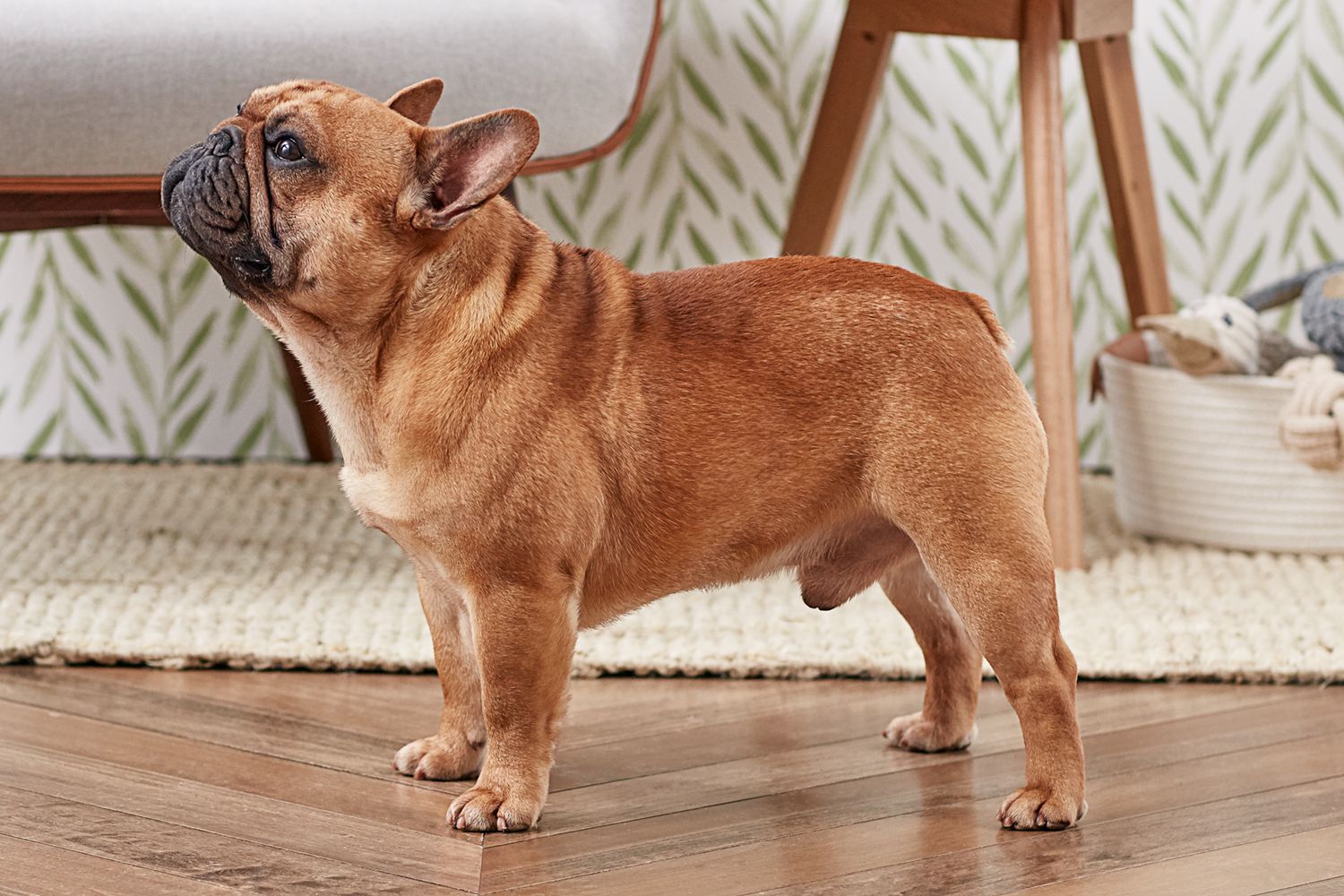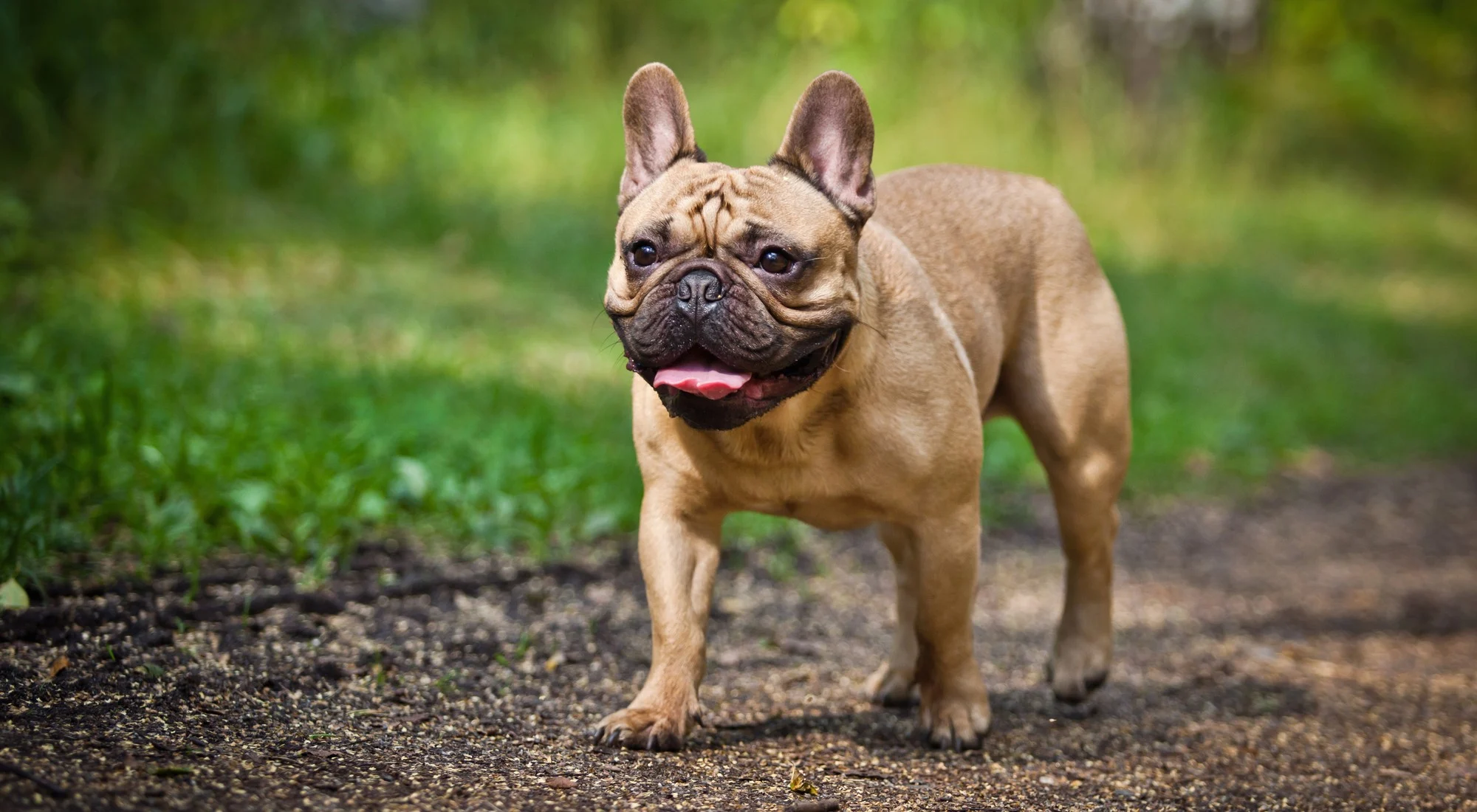
The French Bulldog, affectionately called the “Frenchie,” originated in the mid-1800s as a companion dog for lace workers in Nottingham, England. These workers brought small bulldog-type dogs to France during the Industrial Revolution, where the breed was further refined by crossing with local ratters and small terriers.
Quickly embraced by French society—from working-class neighborhoods to Parisian cafés and artists’ studios—the breed gained a reputation for its charm, wit, and compact size. The French Bulldog made its way to America by the late 19th century and was recognized by the American Kennel Club (AKC) in 1898.
Today, the Frenchie is one of the most popular dog breeds worldwide, especially adored by city dwellers and apartment owners.
The French Bulldog has exploded in popularity over the past two decades, consistently ranking in the top 5 AKC breeds in the United States. Its adorable appearance, sociable nature, and low exercise needs make it a favorite for urban living, first-time dog owners, and celebrity pet parents alike.
French Bulldogs are small, muscular dogs with bat-like ears, a flat face, and a distinctive silhouette.
• Coat: Short, smooth, and shiny—low maintenance.
• Color:
o Common shades include brindle, fawn, cream, pied, and newer blue, lilac, or merle (though not all are recognized by breed standards).
• Size:
o Height: 11–13 inches (28–33 cm)
o Weight: Under 28 lbs (13 kg)
• Head & Expression: Broad, square head with a wrinkled forehead and large, round, dark eyes full of expression.
• Ears: Signature “bat ears”—upright, rounded at the tips, and wide at the base.
• Tail: Naturally short—straight or corkscrew.
• Body: Compact and sturdy, with a broad chest and thick neck.
Frenchies are sociable, affectionate, and full of personality, known for their goofy antics and devotion to their humans.
• Charming and Comical: Loves to entertain and be the center of attention.
• Affectionate and Loyal: Forms strong bonds—thrives on companionship.
• Playful but Not Hyper: Enjoys bursts of activity but also loves to relax and cuddle.
• Alert but Not Yappy: Makes a decent watchdog, but not overly vocal.
• Gets Along with Everyone: Typically friendly with kids, strangers, and other pets.

The Frenchie is perfect for individuals or families looking for a low-maintenance, lovable companion that adapts well to indoor living.
• Great Apartment Dog: Doesn’t need a yard—a few short walks and indoor play suffice.
• Minimal Grooming Needs: No elaborate coat care.
• Adaptable and Easygoing: Fine in new environments and around people.
• Compact Size: Easy to travel with or carry when needed.
• Low Barking, High Cuteness: Peaceful at home, but full of expression.
While easy to live with, the French Bulldog does require special attention due to its brachycephalic (short-nosed) structure.
• Training:
o Intelligent but sometimes stubborn—positive, reward-based methods work best.
o Early socialization helps prevent clinginess or overprotectiveness.
• Exercise:
o Needs moderate activity, such as short walks and indoor games.
o Avoid overexertion, especially in hot weather.
• Grooming:
o Weekly brushing and regular cleaning of facial folds, ears, and eyes.
o Bathe as needed—use gentle, dog-specific shampoo.
• Nutrition:
o Prone to weight gain—portion control is essential.
o Choose digestive-friendly food, as some Frenchies have sensitive stomachs.
• Climate Concerns:
o Due to their short snout, they are heat-sensitive—keep cool in summer.

French Bulldogs are prone to several health issues, so responsible breeding and preventive care are critical. Average lifespan: 10–12 years.
Common concerns include:
• Brachycephalic Airway Syndrome
• Intervertebral Disc Disease (IVDD)
• Skin Allergies and Dermatitis
• Cherry Eye and Other Eye Conditions
• Hip Dysplasia and Joint Issues
Vet-recommended weight control, regular exams, and avoiding extreme heat can help prolong quality of life.
Compared to the Boston Terrier, the Frenchie is stockier and more relaxed, with a quieter disposition. It’s lower-energy than the Pug, and less barky than many other small breeds. Unlike the English Bulldog, it’s smaller, more agile, and better suited for small spaces.
If you’re seeking a charming, affectionate, and compact companion, the French Bulldog is a great choice. Ideal for apartment dwellers, families, or seniors, it offers big personality in a small, manageable package.
However, potential owners should be prepared for health-related costs and temperature sensitivity.
United Pet Club provides tools to help you find a responsible breeder, understand the breed’s needs, and keep your Frenchie happy and healthy. From training guides to health tips, we’re here to support your journey with this adorable and irresistible companion.